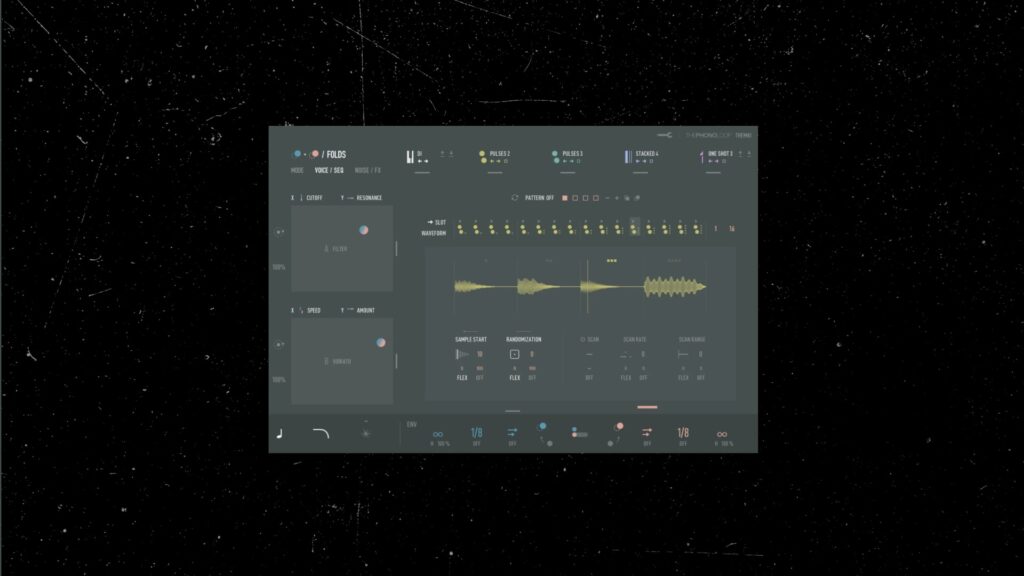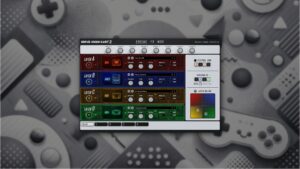THEPHONOLOOP has built a reputation for crafting some of the most vibey and characterful virtual instruments around. Their tapes.01 library in particular has become something of a cult classic—an endlessly inspiring lo-fi playground full of dusty, warbly sounds. So when I saw they had something new called theMkI, my curiosity was instantly piqued.
The name itself immediately makes you wonder: are we talking about a Rhodes? An electric piano? The answer is yes—and so much more.
Prefer video? Check them out here:
First Impressions
Sure enough, loading up the initialized patch revealed what I suspected: a sampled Rhodes Mark I. Straight out of the gate, it sounded fantastic—super playable, soft around the edges, and absolutely perfect for lo-fi, hip-hop, and ambient styles. The Rhodes has always been a go-to instrument in those genres, and this one slots right in.
But that default Rhodes tone is only the beginning. theMkI quickly reveals itself as far more than just another Rhodes library—it’s an expansive creative playground.
Presets & Navigation
The library comes packed with folders of sounds, from Classics (straightforward electric piano tones) to more experimental categories like Extensions, Essences, Collages, Fragments, Passages, Plucks, and many more. Each folder contains dozens of presets, often with slightly cryptic names, which can make navigation tricky at first.
Once you start exploring and saving favorites, though, the system flows much more naturally. And despite the abstract naming, I found that many presets are described in terms of their “shape” and “feel,” which helps guide your expectations.
What’s immediately clear is the sheer scope here. This isn’t just another Rhodes sample library. It’s a Rhodes at the center, branching out into granular treatments, hybrid textures, tape-saturated atmospheres, plucky keys, and evolving soundscapes. Some patches sound like FM synths, some like music boxes, others like steel drums or harmoniums—all while retaining a tangible, playable feel.
Immediately you realize: this is not just another electric piano plugin. It’s a creative sonic sandbox.
Interface & Engine
Visually, theMkI nails it. The washed-out, grainy UI sets the mood right away. It’s minimal and stylized—some may find it cryptic at first—but once you learn the layout, it gets out of the way and lets you focus on playing. THEPHONOLOOP has since updated the interface with optional darker skins, which add contrast and make the UI much easier on the eyes. A small but excellent improvement.
Under the hood, the instrument is impressively deep. You can choose between different core sounds (clean DI, tape deck A, or tape deck B, each with varying amounts of hiss and warble), layer additional sample slots, and dive into modes that completely reshape how the engine behaves. Modes like Orbits, Contour, Streams, Ripple, and many more essentially act as instruments within the instrument. They sound fantastic and give theMkI a whole new identity every time you switch.
Beyond that, there are XY pads for noise and effects, flexible bus FX (drive, tremolo, chorus, shifting), a powerful sequencer, and granular-style processing that’s both musically responsive and deeply inspiring. Unlike many granular engines that feel random or unruly, theMkI reacts intuitively to your performance dynamics, making it a genuine joy to play.
It’s one of those instruments where the deeper you go, the more it rewards you—but you can just as easily load a preset and get instant inspiration.
Sound & Playability
This is where theMkI truly shines.
- Playability – The core Rhodes samples are excellent. Dynamics feel natural—digging in gives just the right amount of bite, while softer playing produces lush, rounded tones.
- Lo-fi character – The noise layers, tape coloration, and mechanical artifacts are gorgeous. They add grit and vibe without ever becoming harsh or fatiguing.
- Creative presets – Many of the processed patches are extreme, yet they never feel gimmicky. They’re cohesive, musical, and genuinely inspiring. More than once I found myself lost in a preset, forgetting I was “reviewing” and just playing.
- Noise design – Special mention goes to the noise profiles. They have a tangible, visceral, mechanical quality that feels alive, not just layered on top.
Every patch feels carefully designed, with tiny details and movement baked in. Even drones and pads feel lively instead of static, which is rare in sample libraries.
Criticisms
No instrument is perfect, but this gets very close. If I had to nitpick, theMkI has two small hurdles:
- Preset naming – Many presets are simply numbered (Essence 06, Essence 07, etc.). That can make it tough to know what to expect—or remember which preset you loved—until you start building up a list of favorites. Including a descriptive adjective alongside each category name would make navigation more intuitive and help you quickly find the kind of sound you’re after.
- Interface minimalism – The stripped-down UI is something I personally enjoy, as it ultimately leads to a fast and intuitive workflow. However, newcomers will want to keep the manual close at hand—for instance, it’s not immediately clear that the title text functions as a dropdown menu.
But in the big picture, these are minor quirks in an instrument that otherwise delivers at the highest level.
Final Thoughts
I’ve played a lot of electric piano libraries over the years, and I hold them to a high standard. theMkI clears that bar with room to spare—and then goes way beyond it. This isn’t just another Rhodes VST. It’s a massive creative sandbox with multiple unique “engines” inside, capable of morphing into countless textures and tones while still feeling cohesive and musical.
Few libraries manage to be this playable, this versatile, and this inspiring all at once. theMkI doesn’t just raise the bar for Rhodes instruments—it redefines what a creative sample library can be.
Verdict: 10/10. Absolutely stellar work from THEPHONOLOOP.
👉 If you’re already a fan of tapes.01, this is an instant must-buy. If you’re new to THEPHONOLOOP, theMkI is the perfect entry point—it shows exactly why this company has such a dedicated following.





